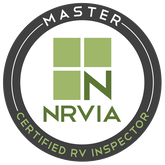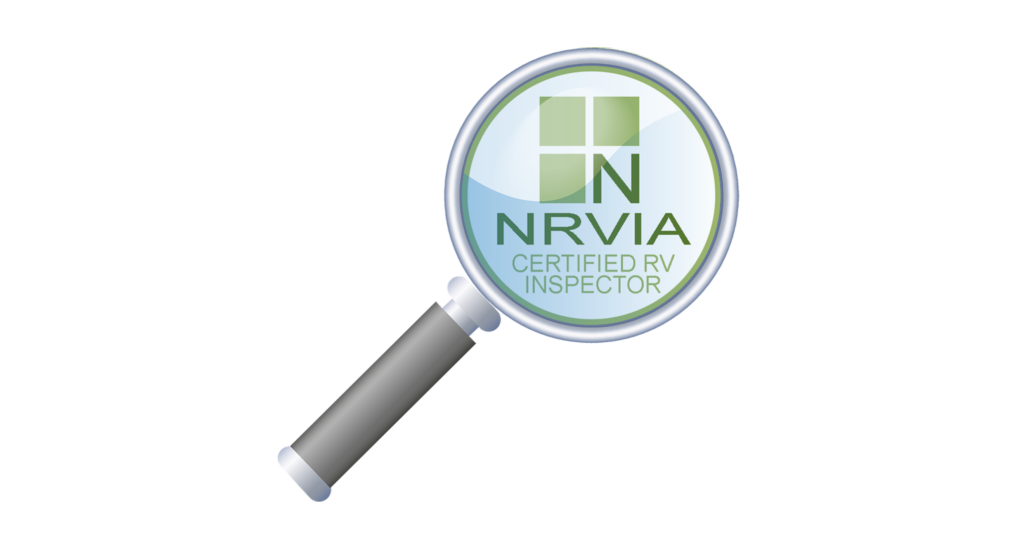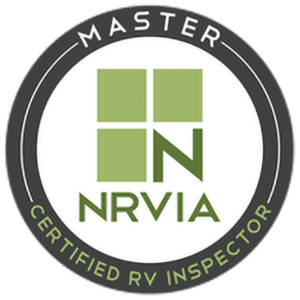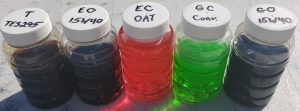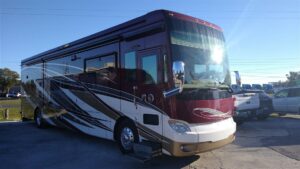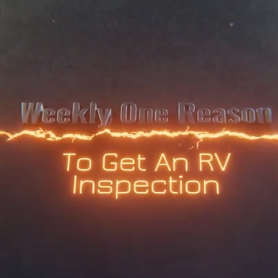Buying An RV
Buying an RV is one of the biggest financial decisions you will make during your lifetime. When buying a home, having it inspected is an integral part of the process. Some states require cars and trucks to have state inspections. Since an RV is a combination of a home and a vehicle, why wouldn’t you have a thorough pre-purchase NRVIA Certified RV inspection prior to taking delivery?
We strongly advocate opting for a full RV inspection whether you plan to purchase from a private seller, RV dealer or RV consignment service. Having an independent RV inspection will save you in several ways.
By knowing the current condition of an RV, you may be able to more accurately estimate RV repair costs and negotiate the cost of RV repairs or even the RV purchase price. Not to mention saving you the frustration and headaches you may suffer if the recreational vehicle breaks down after you drive it off the lot or during your first adventure.
After an NRVIA Certified RV inspection, you will receive a detailed RV inspection report and you can make an educated decision. You will know what you are getting into, and the evidence will even help put you in a better bargaining position. At the very least, a pre-purchase RV inspection will save you from expensive and surely unpleasant surprises later down the road.
When the RV inspector points out issues or faults with the RV, you have the choice of opting out of that purchase or requesting certain RV repairs before you proceed with the RV purchase. A “punch list” can be created and will undoubtedly give you the upper edge in the negotiating process.
If you are the seller of an RV, then an RV inspection puts you in the superior position of bargaining for a good price. It will prove to the prospective RV buyers that your RV is in top shape, sound health and the good condition that you have advertised.
Sometimes banks and lending institutions will require an RV inspection to gauge the RV condition and analyze the risk of lending money to a potential RV buyer. When opting for an RV extended warranty or RV extended service contract, the RV warranty company sometimes requests an RV inspection before providing RV warranty coverage.
THE RV INSPECTION PROCESS
For the most thorough RV inspection process, full RV hook-ups will provide the most thorough RV inspection and allow the RV inspector to fully inspect all aspects of any motorhome or towable recreational vehicle. This is easily achieved at RV dealerships but can be a bit challenging when it comes to private RV sellers. In this case, RV campgrounds are an obvious choice to provide full RV hook ups and a level RV spot with ample space around the RV.
Whether an RV inspection takes place on a dealership’s RV delivery lot or in a RV seller’s driveway, the area should have adequate space to fully extend the RV slideout rooms and RV awnings. There should be enough room for an NRVIA Certified RV inspector to move a separate ladder easily around the entire RV.
An RV inspection location should also allow an NRVIA Certified RV inspector to gain access to the RV roof since the RV roof is one of the most often areas where RV water intrusion can occur. Be wary of any RV inspection company that does not inspect an RV roof, RV roof components or RV lap sealant.
Why RV Inspections In Florida Are Important
You’ve done the research, found an awesome recreational vehicle that fits your family’s needs, and plan on getting a full RV inspection in Florida. In addition to having many certified RV technicians and some of the most top-notch RV inspection services in the country, Florida is a hot spot for RV’s.
Florida has some of the most brutal weather is the summer. An RV roof may need more maintenance in the sunshine state, because the sun can really take its toll on a rubber RV roof membrane and the lap sealant that protects any penetrations like plumbing vents and skylights.
Florida is not only a hot spot, it can be very wet also. Hurricanes are the norm during the summer and fall seasons. This means more chances for water to make its way into an RV. Whether from flooding or from poor routine maintenance. RV Inspectors in Florida understand these factors and pay more attention to them during your RV inspection.
RV INSPECTION CHECKLIST
- Research and interview RV inspection companies in Florida.
- Agree to and sign an RV inspection contract and pay the invoice so the RV inspection appointment is guaranteed.
- Ask that all the RV manuals, RV maintenance records, RV keys and remote controls are readily available.
- Ask that all personal possessions be removed from the RV cargo bays and cabinets/pantries.
- Ensure that the appropriate 30 Amp or 50 Amp RV shore power supply is available. 15 Amp house power may damage RV components and is not recommended.
- An RV-type refrigerator must be powered ON for at least 12 hours before the RV inspection process because RV absorption refrigerators need time to cool sufficiently.
- It’s better to have a city water connection but if that’s not available, request that the on-board freshwater tank be filled to at least ½ full.
- Accurate evaluation and testing of the RV propane system is critical so (LP) propane tanks must be at least half full.
- RV wastewater systems like RV black tanks and RV grey water holding tanks should emptied and cleaned. RV sewer hook-ups are ideal but not always necessary.
- If the prospective recreational vehicle has an RV generator onboard, it should be filled with the appropriate fuel for the testing process. This can include gas or diesel fuel from the engine or propane.
- RV slides require testing and evaluating RV seals is vital to check for RV water damage so you need to confirm that there is sufficient room for the RV slideouts to fully extend during the RV inspection.
- RV awnings will need space to be extended and retracted.
ATTENDING AN RV INSPECTION DURING THE RV INSPECTION PROCESS
Each RV inspection company has their own guidelines so be sure to inquire about attending an RV inspection during the interview process.
Typically, the RV inspection process may take anywhere between 4 to 8 hours and sometimes longer depending on the RV type and RV age. Ask your RV inspection company how long they will be inspecting the RV. If they are giving you a thorough RV inspection they should be spending a minimum of 4 hrs with the RV. At My RV Inspection we spend a minimum of 4 hrs with the RV and that is with two NRVIA Certified RV Inspectors, not just one NRVIA Certified RV inspector like most companies. Most RV inspectors prefer to perform RV testing and RV evaluation with minimal distractions. This is extremely important so nothing is missed and should be taken into consideration.
Some RV inspectors allow the RV buyer or RV seller to be present only when the process is about to begin or at the very end. Some RV inspection companies require that the RV seller be present, and some prefer the RV buyer to show up near the end to explain their findings. No matter what the RV inspection company prefers there is no wrong way.
At My RV Inspection we prefer to have little to no distractions. This helps us be as thorough as possible. We usually ask that if the buyer wants to attend the inspection that they come after noon and we can go over the findings with them. This will allow us time to complete critical testing without interruption.
Almost all RV inspection companies offer New RV Owner Orientation and Verification of RV repairs once the RV inspection is complete and the repairs have been made. These RV services occur on a different date and even at a different location but are invaluable to newbie RVers who want a little more information than is given at an RV dealership “walk-through.”
In any case, when hiring an NRVIA Certified RV inspection company, you can expect to receive a detailed RV inspection report. Some RV inspection companies do not provide you with your RV inspection report the same day. At My RV Inspection we pride ourselves on getting you the RV inspection report on the same day and making ourselves available for any questions after you receive the RV inspection report.
RV INSPECTOR QUALIFICATIONS
Reputable RV inspection companies are small businesses run by trained RV professionals and their credentials will include NRVIA certified Level 2 RV inspector status. Some NRVIA RV inspectors also possess an RVDA/RVIA registered technician certification and some carry RVIA/RVDA certified technician status as well.
You must not hesitate to ask the prospective RV inspectors for their RV certifications because it will help you determine whether they have the knowledge, experience, and training to conduct the full and thorough inspection for your RV as you are hoping. The only way to assure yourself that you will receive the most comprehensive RV inspection is to ask if the RV inspection company has been trained by the National RV Inspectors Association (NRVIA). This is the only RV inspector training program in the United States and these RV professionals adhere to a strict Code of Ethics and Standards of Practice.
Reviews are a great way to find your next RV inspection company. Look for consistency in the reviews you are reading. Anyone can put testimonials on their website, but that does not make it true. Google reviews are great. They also can give you an idea of how long a company has been in business. If an RV inspection company tells you they have been doing RV inspections for 5 years, but the Google reviews for that company only go back 6 months that is a clue that you are being mislead.
The NRVIA certified RV inspectors will not only examine your RV but also test the many operating systems and expertly document their findings.
Companies like Premier RV Inspections and Lemon Squad are cheaper. They also hire independent contractors to complete their RV inspection. There are little to no qualifications needed to perform an RV inspection for these companies. Reputable NRVIA Certified RV inspectors will not perform RV inspections for these companies. Any carelessness or blind trust can lead you to companies who might not even check the RV roof during the inspection.
Salespeople from many different RV dealers and RV consignment lots tell us all the time that these companies spend about 45 minutes at the RV and that our RV Inspections should not take any longer than theirs. There are times that it can take us 45 minutes just to level the RV, run the slideouts, verify the VIN number, and turn the systems on.
If during the first LP leak test a leak is detected, we must perform this test up to 5 times with 2 different manometers. Each test takes approximately 10 minutes to make sure it is done right. A leak in the LP system can take nearly an hour to verify.
Author: Jason
Jason Is An NRVIA Master Certified RV Inspector. He has won the NRVIA Service Excellence Award and was named NRVIA member of the month in March of 2018.

